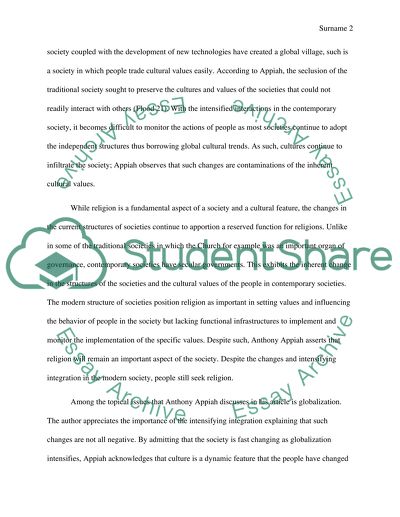Cite this document
(“The case for contamination by Anthony Appiah Essay”, n.d.)
Retrieved from https://studentshare.org/religion-and-theology/1650026-the-case-for-contamination-by-anthony-appiah
Retrieved from https://studentshare.org/religion-and-theology/1650026-the-case-for-contamination-by-anthony-appiah
(The Case for Contamination by Anthony Appiah Essay)
https://studentshare.org/religion-and-theology/1650026-the-case-for-contamination-by-anthony-appiah.
https://studentshare.org/religion-and-theology/1650026-the-case-for-contamination-by-anthony-appiah.
“The Case for Contamination by Anthony Appiah Essay”, n.d. https://studentshare.org/religion-and-theology/1650026-the-case-for-contamination-by-anthony-appiah.


